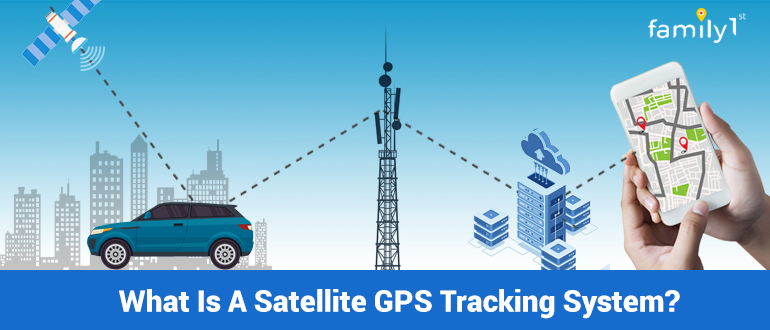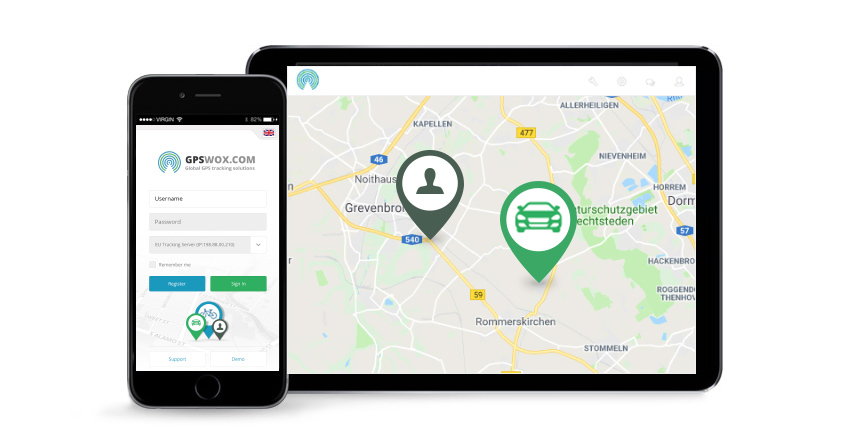Advanced GPS Tracking Systems: Keeping Your Possessions Protect
Advanced GPS Tracking Systems: Keeping Your Possessions Protect
Blog Article
Making Best Use Of Performance With GPS Monitoring: Methods for Fleet Administration and Asset Monitoring
In the world of fleet administration and possession tracking, the application of GPS tracking systems has become a cornerstone for boosting functional performance and efficiency. As we explore the different strategies and methods to optimize efficiency with General practitioner monitoring, a globe of opportunities opens up to redefine just how companies handle their fleets and monitor their assets.
Executing Real-Time Monitoring Equipments
To maximize operational efficiency, companies can carry out real-time tracking systems that offer instant location information for their possessions. By utilizing GPS modern technology, businesses can obtain real-time understandings into the location of their automobiles, equipment, and various other important sources. This degree of presence enables business to streamline procedures, enhance efficiency, and boost overall efficiency.
Real-time monitoring systems use numerous benefits for business across different sectors. With the capacity to check possessions continuously, organizations can optimize transmitting, schedule maintenance better, and minimize the danger of burglary or loss. These systems make it possible for companies to react quickly to any type of unexpected occasions or disturbances, making certain marginal downtime and optimum efficiency.
Applying real-time radar requires cautious planning and factor to consider of certain company requirements. Firms have to pick the ideal modern technology company, tailor the system to fulfill their requirements, and give sufficient training to workers. By investing in real-time monitoring remedies, companies can remain ahead of the competition, provide exceptional customer care, and accomplish sustainable growth in today's hectic market setting.
Optimizing Path Planning and Organizing

One key approach for maximizing path preparation is to make use of historic information and real-time information to identify the most efficient paths for vehicles. By analyzing previous paths and thinking about factors such as web traffic patterns and distribution windows, businesses can produce schedules that minimize unnecessary stops and delays. Additionally, carrying out dynamic directing abilities allows for adjustments to be made in real-time based on transforming problems, making sure that vehicle drivers constantly take the most effective path to their location.
Enhancing Driver Performance and Security
Enhancing chauffeur efficiency and security is paramount in making certain the smooth and secure procedure of a fleet. By using general practitioner tracking modern technology, fleet managers can check motorist behavior in real-time and offer immediate feedback to advertise risk-free driving practices. This includes surveillance rate limitations, rough braking, acceleration patterns, and adherence to web traffic guidelines.
In addition, GPS tracking systems can help in recognizing chauffeurs that might need additional training or assistance to enhance their efficiency (gps tracking). By examining visit this website data on driving routines and patterns, fleet supervisors can implement targeted training programs to attend to particular areas of improvement. This proactive method not only enhances overall chauffeur performance yet also adds to a more secure workplace for every person involved
Along with efficiency monitoring, general practitioner tracking systems can also improve motorist security by supplying emergency support features. In the occasion of an accident or malfunction, motorists can rapidly send distress signals, allowing fleet supervisors to react promptly and dispatch assistance when needed. On the whole, integrating GPS tracking modern technology into fleet monitoring techniques is crucial for maximizing motorist efficiency and guaranteeing the security of both vehicle drivers her comment is here and possessions.

Making Use Of Geofencing for Improved Security
Making the most of fleet protection exceeds monitoring driver performance and safety and security; one efficient method is through the calculated usage of geofencing technology. Geofencing permits fleet supervisors to establish online limits or geozones around specific locations, enabling them to receive real-time informs when cars enter or exit these designated locations. By establishing geofences around high-risk locations such as construction sites, unauthorized areas, and even customer locations, fleet supervisors can enhance protection measures and reduce possible risks.
Geofencing not only improves safety yet likewise allows quick response times in instance of unauthorized automobile use or theft. In case of a violation, alerts can be sent out to fleet supervisors, allowing them to take instant action to situate and recoup the automobile. In addition, geofencing can assist in checking lorry activity throughout off-hours, making sure that lorries are not being utilized for unapproved functions.
Integrating GPS Data for Strategic Decision-Making
Utilizing GPS data combination is necessary for educated tactical decision-making in fleet management procedures. By integrating GPS data into fleet administration systems, companies can gain valuable understandings into their operations, resulting in more reliable routes, improved driver behavior, and find out here far better total performance. With the assimilation of GPS data, fleet supervisors can track car places in real-time, monitor gas consumption, and assess driver efficiency metrics such as rate, idling time, and extreme stopping.
Furthermore, integrating GPS information enables the optimization of paths based on web traffic conditions, weather condition patterns, and other outside variables, helping to minimize shipment times and operational expenses. By evaluating historical GPS information, fleet managers can identify fads, patterns, and areas for renovation, allowing them to make data-driven decisions that enhance productivity and enhance operations.
Conclusion
In final thought, the execution of GPS tracking systems can greatly improve efficiency in fleet administration and asset surveillance. By using real-time monitoring, maximizing course preparation, improving vehicle driver performance, making use of geofencing for safety and security, and incorporating GPS data for tactical decision-making, organizations can boost operations and attain cost savings (gps tracking). These strategies allow businesses to simplify processes, increase efficiency, and ultimately make the most of the general performance of their operations
In the world of fleet management and property monitoring, the use of General practitioner tracking systems has actually come to be a keystone for improving functional performance and performance. As we check out the various techniques and methods to make the most of effectiveness with GPS tracking, a world of opportunities opens up to redefine just how organizations manage their fleets and check their possessions.
By using General practitioner monitoring innovation, fleet supervisors can keep an eye on chauffeur actions in real-time and supply prompt responses to advertise secure driving practices. Through the assimilation of GPS data, fleet managers can track lorry locations in real-time, monitor gas consumption, and examine vehicle driver efficiency metrics such as rate, idling time, and extreme braking.
In final thought, the implementation of GPS monitoring systems can substantially improve effectiveness in fleet management and possession tracking.
Report this page